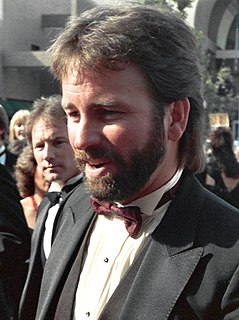A Quote by Julian Baggini
If philosophy is to be a valuable part of life, we have to appreciate it for its own sake, and not just for what it's done for us lately.
Related Quotes
The Daoist appeal to simplicity can be very appealing to the many of us who feel that contemporary life is overwhelming. "Less is more" can be a call to identify what it is we really need and appreciate doing for its own sake, as opposed to what we have been socialized into wanting, often to our detriment, or becoming consumed by activity that we would never do for its own sake but only for the sake of something else.
... only the good deed done for Christ's sake brings us the fruits of the Holy Spirit. All that is not done for Christ's sake, even though it be good, brings neither reward in the future life nor the grace of God in this life. That is why our Lord Jesus Christ said: 'He who gathers not with Me scatters' (Lk. 11:23).
Someone has said it is better to appreciate the things you don't own than to own things you don't appreciate. I hope we will have with us a spirit of appreciation for all of the good things we enjoy, all the blessings that we have, many of which have come so easy to us, with very little effort on our part, and yet they are very real and very choice and are truly rich blessings.
Everybody have equal rights to a life of full flourishing. Philosophy slowly, slowly has given us arguments saying, look, you already committed to your own life flourishing, and you're being inconsistent if you don't expand it. So philosophy often works in trying to show us that there's an inner incoherence in our points of view. We're all committed to one thing when it comes to us and our own kind, but we're not willing to expand it and we're guilty of inconsistency.
Let us be satisfied simply with what sustains our present life, not with what pampers it. Let us pray to God for this, as we have been taught, so that we may keep our souls unenslaved and absolutely free from domination by any of the visible things loved for the sake of the body. Let us show that we eat for the sake of living, and not be guilty of living for the sake of eating. The first is a sign of intelligence, the second proof of its absence.
Philosophy - reduced, as we have seen, to philosophical discourse - develops from this point on in a different atmosphere and environment from that of ancient philosophy. In modern university philosophy, philosophy is obviously no longer a way of life, or a form of life - unless it be the form of life of a professor of philosophy.
I know different ways of looking at things. I have my stockholders, and I feel a very keen responsibility to the shareholders, but I feel that the main responsibility I have to them is to have the stock appreciate. And you only have it appreciate by reinvesting as much as you can back in the business. And that's what we've done... and that has been my philosophy on running the business.



































